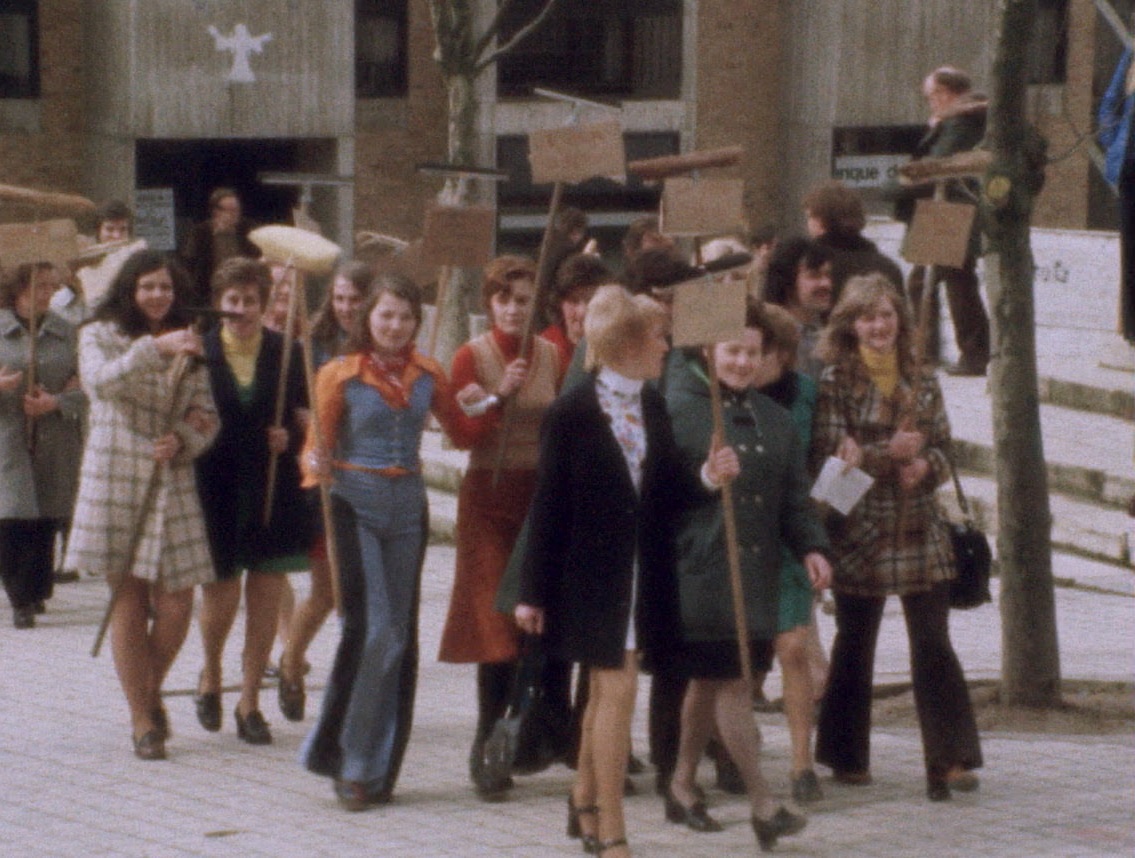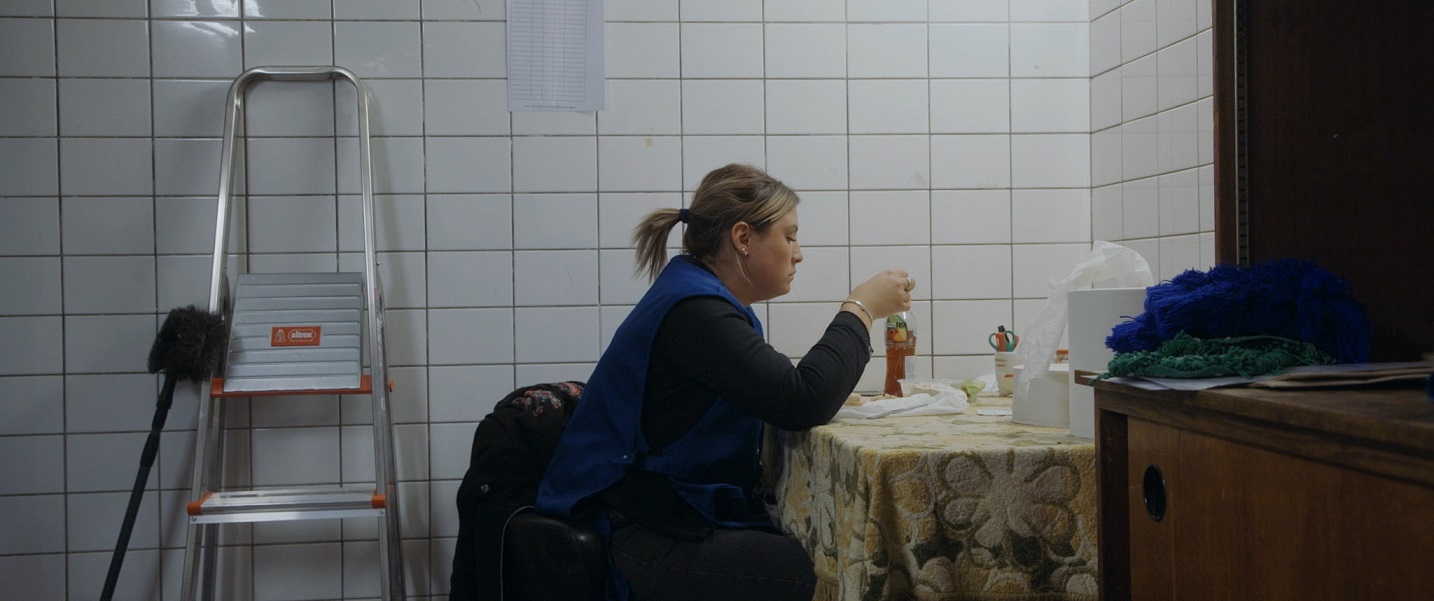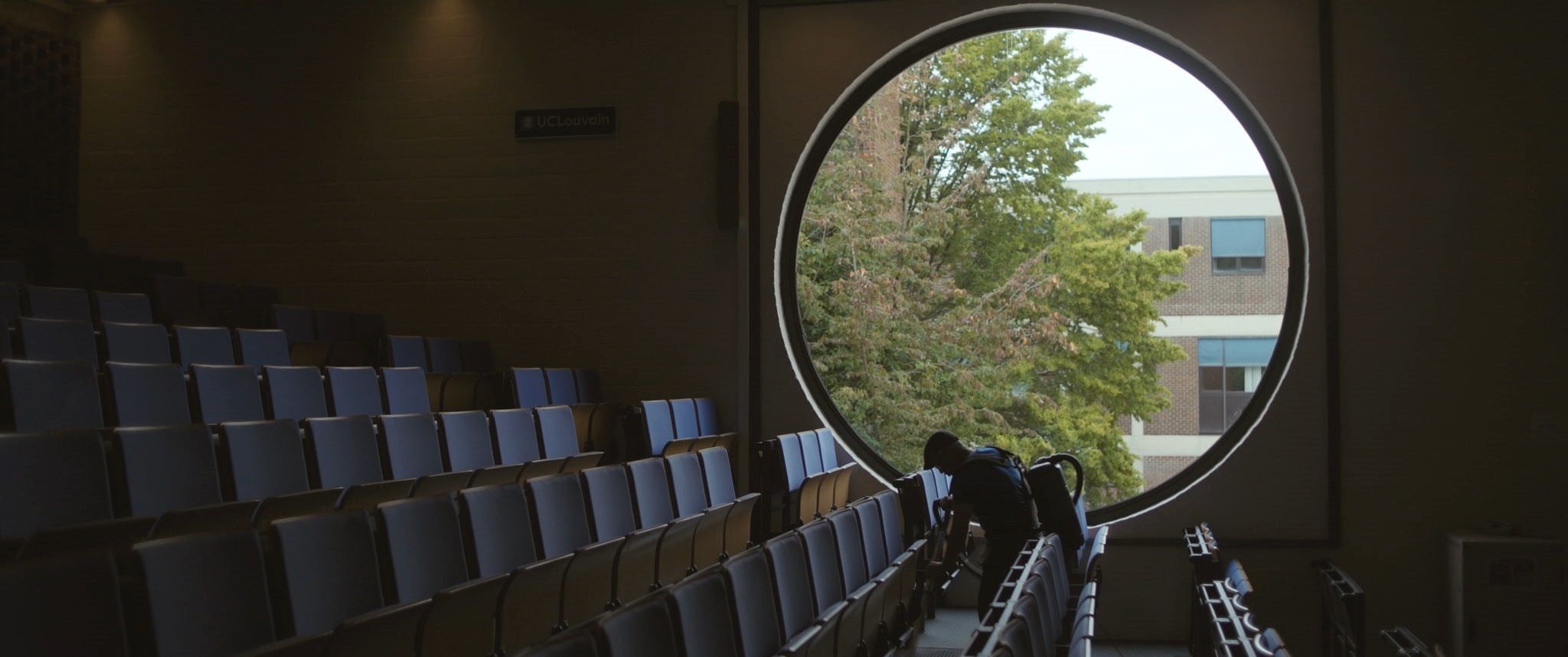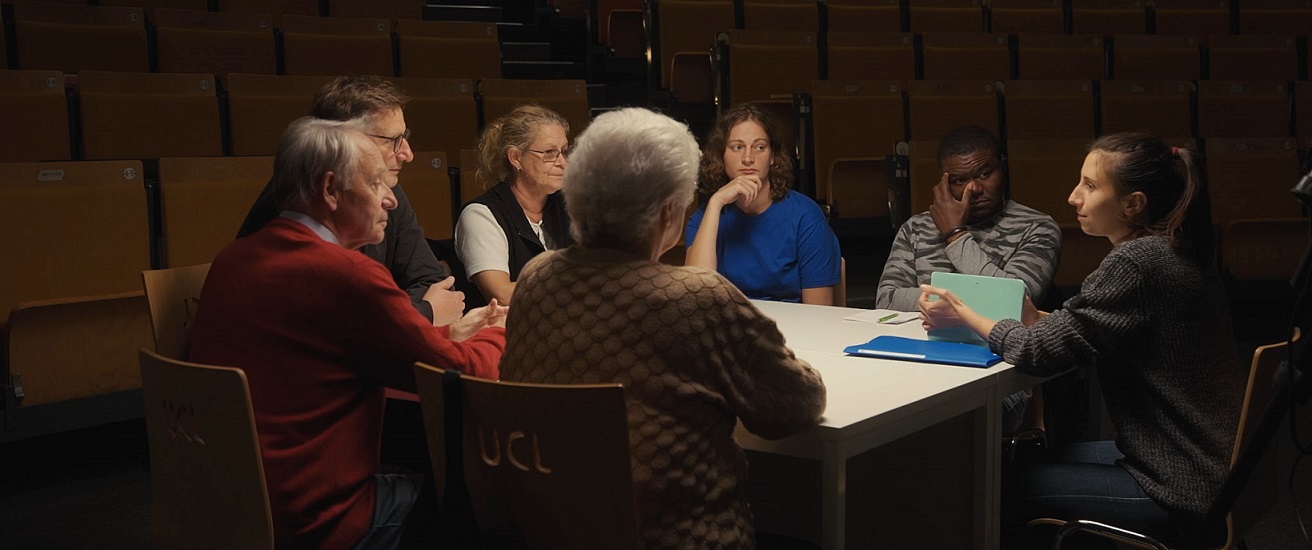Times are changing and governments and some trade unions are crawling along to catch up. Sub-contracted work deprives workers in service industries of their most basic rights to security and often to physical and mental safety. New unions and workers’ cooperatives are a way forward, neglected since the 1970s.
 Graham Douglas
Graham Douglas
Zero-hours contracts and the so-called gig-economy are a major source of exploitation among service workers. Governments have been sluggish to respond to a problem that has existed for more than 10 years, and ‘official’ trade unions have often proved unwilling to act.
Solidarity is the key to resisting exploitation and this situation has led to the formation of two new unions in recent years.
The Independent Workers Union of Great Britain (IWGB) was formed in 2012 by Latin American workers and has grown to thousands of members in the most exploitative industries, including couriers, cleaners, and care workers. United Voices of the World (UVW) has 5000 members also among migrant workers. Both unions have been active in support of cleaners at British universities, where sub-contracted labour is very common and the workers themselves are not included in negotiations.
 A less common means of struggle nowadays is for the workers to form a cooperative and negotiate directly with the property owners, and Coline Grando’s film “The liberated broom” (Le Balai Libéré) tells the story of a cleaners’ coop with this name that was formed to overcome sub-contracted labour exploitation at the University of Louvain in Belgium in the 1970s. She meets the current cleaners at this enormous site who compare this coop with their current situation. The university was built in the 1960s on a site which became Louvain-le-Neuve when the existing university stopped accepting French-speaking students. It doesn’t have to be like this, and in the US unions are gaining strength.
A less common means of struggle nowadays is for the workers to form a cooperative and negotiate directly with the property owners, and Coline Grando’s film “The liberated broom” (Le Balai Libéré) tells the story of a cleaners’ coop with this name that was formed to overcome sub-contracted labour exploitation at the University of Louvain in Belgium in the 1970s. She meets the current cleaners at this enormous site who compare this coop with their current situation. The university was built in the 1960s on a site which became Louvain-le-Neuve when the existing university stopped accepting French-speaking students. It doesn’t have to be like this, and in the US unions are gaining strength.
I spoke to Coline for The Prisma, after her film was shown at Doclisboa in October.
Can you tell me more about your previous films and your main interest in film-making? I saw you had made a film about care workers, and also “Men’s place” and “The theory of Y”.
I first started working on the role of men in abortions because it crystalized relationships between men and women and those were topics that were very personal to me (and still are). I spent a lot of time at a Planned Parenthood centre, and through this first got to witness care workers from inside.
 It got me very interested in care work in general. I think it’s a crucial topic to film today, because they are at the intersection of many questions: women’s work, the gap between the importance of care work for our society and how little it’s valued by society, etc.
It got me very interested in care work in general. I think it’s a crucial topic to film today, because they are at the intersection of many questions: women’s work, the gap between the importance of care work for our society and how little it’s valued by society, etc.
How did you hear about “The liberated broom” and why did you want to make this film?
I first heard about it after my studies in the university where the story takes place. I found this story about cleaners who fired their own boss and started a self-management company incredible, and I decided to research it. In the union’s archive, I found a lot of documents, press, reports from the liberated broom and a list of the members of this self-management company, with their postal addresses, which I started visiting. And I found a lot of cleaners, also activists, students who supported the liberated broom. During that research, I realized that I don’t want to make a movie who just tells the past story. I wanted to bring this film into the present, so I went to the university to meet the present workers and understand their working conditions.
 Was it difficult to find the people who used to work there so long ago?
Was it difficult to find the people who used to work there so long ago?
Working class people in Belgium don’t move much, a few of them are at the same address, and some have died. Just one of the people who used to work in “The liberated broom” has come back to work there and she is now 65 years old. There was one entire family who worked there, so when I found one person, I found 10!
Sub-contractors are a new capitalist level of exploitation between the workers and the universities in this case. Is this common in Belgium?
Yes, it’s very representative not just of the cleaning sector, and it’s very hard for the workers because they are at the end of the chain. It happens at all the universities and in the transport sector for example.
These service industries are not like manufacturing, they are well-adapted to self-management. So why are there not more workers’ cooperatives?

The workers are often not confident enough, and the system is geared against them. It’s possible to set up cooperatives, but you need resources, not just money but also knowledge and skills in self-management that are rarely taught to workers (or to anyone else). You don’t learn how to collectively manage a cooperative at school – we live in a system that is much more interested in competition. Many people don’t even know working this way is a possibility.
This kind of story is never told. There is no place for this kind of company because the sub-contracting companies control the market. But it happens in other sectors, for example in France there is Scop-Ti which works very well making packets of tea.
There are films about them. And the cleaners at a University in Brussels are negotiating for direct contracts.
What about the trade unions?
The workers don’t trust them because they don’t bring them any benefits; they are not as pro-active as they were. And when there is a union, the representative is also the manager of the workers, so he is not going to call a strike and lose his job. This is a common strategy for companies to weaken the power of the unions.
 In London the immigrant workers who do most of the cleaning work at London University formed their own trade union because the big unions were not helping them.
In London the immigrant workers who do most of the cleaning work at London University formed their own trade union because the big unions were not helping them.
Big Cleaning Company (BCC) like Kose Cleaning or Laurenti never hire illegal immigrant workers, but they sub-contract other smaller cleaning companies who sometimes don’t care about hiring illegal workers. The BCC turns a blind eye on who are hired. It’s the perfect example of a sub-contracting chain.
When a worker leaves or is ill they may be replaced by someone from a different sub-contracting company who is not interested in improving the conditions of the workers. And many of the workers have more than one job, they start at 6.00 until midday and then they have to go to a different place for another cleaning job and they are not paid for the time between jobs. This makes it difficult to organize a strike.
Another reason that the Louvain workers don’t move is because the working conditions are better than in other places, the pay is better, and the contracts are not so short.
 One of the workers had also done care work and she prefers cleaning work because: “You are not abusing people, only furniture”.
One of the workers had also done care work and she prefers cleaning work because: “You are not abusing people, only furniture”.
Today’s capitalist logic of profits and productivity above all also applies to care work, where you have less and less time to do your job properly. In this situation, the worker was talking about working in an elderly care home and not being able to provide adequate care for the elderly she was taking care of, simply because it wasn’t possible with the time pressure and the few resources she had. To her, it felt like abusing people, instead of actually taking care of them as her job was supposed to be. It’s a valid point.
Mental stress and physiological injury from harsh working conditions were also mentioned. Are the Health and Safety regulations inadequate?
The wages are controlled at union rates and the cost of materials is fixed, so the only way that a sub-contractor can offer a lower price to the university is by having each worker clean a larger surface area each day, and this is not regulated. The unions are trying to get new regulations introduced.
 One of the big problems is that the workers themselves are not represented at the table when contracts are being considered, so the lowest price always wins.
One of the big problems is that the workers themselves are not represented at the table when contracts are being considered, so the lowest price always wins.
(Photos © CVB Centre Vidéo de Bruxelles, supplied by the interviewee and authorized for publication)












.jpg)












